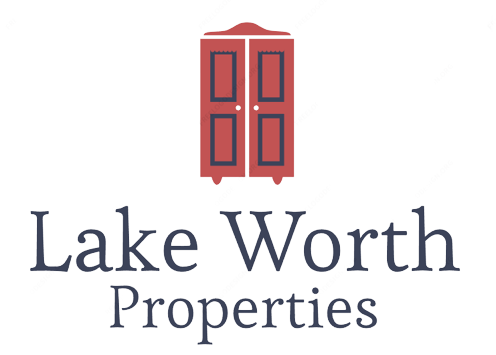Bridging South Florida Real Estate and Loan Terms
Welcome to the sunny coast of South Florida, a melting pot of opportunities for first-time homebuyers, investors, empty nesters, relocating professionals, and vacation home seekers alike. In the dynamic world of South Florida real estate, understanding the nuances of interest rates, loan terms, and affordability can make the difference between a good investment and a great one. To help you navigate this landscape, we’ve crafted a comprehensive guide that ties together these key financial concepts with the unique attributes of South Florida’s property market.
Understanding Interest Rates
At its core, an interest rate is the cost you pay to borrow money, usually expressed as a percentage of the loan amount per year[^1^]. In the context of mortgages, the interest rate directly affects your monthly payments and the overall cost of your home.
Impact on First-time Home Buyers
For first-time homebuyers, an understanding of interest rates is essential. Consider this scenario: you’ve found your dream home priced at $300,000. With a fixed interest rate of 3%, your monthly mortgage payment would be approximately $1,264[^2^]. However, if that rate increased to 4%, your monthly payment would rise to roughly $1,432[^3^]. That’s a difference of $168 per month, or $60,480 over the life of a 30-year loan! Tools like mortgage calculators can help you understand how different interest rates can affect your payments, helping you make informed decisions about what you can afford.
Influence on Investors
Investors, too, must keep a close eye on interest rates. A lower interest rate means less paid in interest over time, potentially boosting the return on investment (ROI) for a rental property. Conversely, higher interest rates may require charging higher rent to maintain profitability, which could potentially discourage potential tenants. Understanding the difference between fixed and variable rates can also play a critical role. Fixed rates offer stability in knowing exactly what your payments will be, while variable rates can provide opportunities to capitalize on periods of lower interest rates[^4^].
Role for Vacation Home Buyers
Interest rates take on a new level of importance when buying a vacation home in South Florida. Since these properties are often second homes, it’s crucial to account for the impact of potentially higher interest rates on overall affordability. With potentially less usage compared to a primary residence, higher interest rates could significantly impact the overall cost and enjoyment of your vacation property.
Deciphering Loan Terms
Loan terms, or the agreement stipulating the length of time you have to repay a loan, have significant bearing on your real estate investments. Common loan types used in South Florida include fixed-rate, adjustable-rate, FHA, and VA loans[^5^]. Understanding loan amortization, or the way your payments are divided between interest and principal over time, can also provide deeper insight into how your money is working for you[^6^].
Importance for Relocating Professionals

For professionals relocating to South Florida, loan terms can greatly influence financial planning. Choosing a shorter-term loan, such as a 15-year mortgage, may mean higher monthly payments, but the home would be paid off sooner. A longer-term loan, like a 30-year mortgage, offers lower monthly payments but more interest paid over time. Weighing these considerations against career plans and retirement goals is crucial for long-term financial health.
Significance for Empty Nesters
Empty nesters, often operating on fixed incomes or retirement savings, must also carefully consider loan terms. Shorter-term loans might prove beneficial, leading to less total interest paid. Plus, the prospect of having a fully paid-off home can provide an attractive sense of financial freedom in retirement.
Strategies for Investors
Investors may consider leveraging adjustable-rate loans to their advantage. While they come with a level of risk, these loans often start with a lower interest rate than fixed-rate loans. If the plan is to sell or refinance the property before the rate begins to adjust, this can be an advantageous approach.
Assessing Affordability
Finally, evaluating the affordability of real estate in South Florida brings together all these concepts. Affordability isn’t simply about the listing price; it also includes other costs like property taxes, insurance, and maintenance.
Evaluating for First-Time Buyers
First-time buyers can assess affordability by considering all housing costs, including the mortgage payment, property taxes, homeowner’s insurance, and maintenance expenses. There are several rules of thumb, like the “28/36 Rule,” suggesting that no more than 28% of your gross monthly income should go towards housing costs, and no more than 36% towards total debt service[^7^]. Tools like affordability calculators can provide estimates based on your personal financial situation.
Consideration for Vacation Home Buyers
Vacation home buyers must consider additional factors like travel costs, property management, and the potential for rental income. The costs of owning a vacation home can be offset somewhat by renting it out when not in use, but that comes with its own set of considerations, including property management costs, wear and tear, and the impact of local rental regulations[^8^].
Analysis for Investors
For investors, affordability is a matter of numbers. It’s crucial to estimate potential rental income and balance it against mortgage payments, taxes, insurance, and maintenance. The “1% Rule” is a popular guideline suggesting that monthly rent should be at least 1% of the property’s purchase price[^9^]. However, individual market conditions in South Florida, like seasonal demand for vacation rentals, can significantly impact these calculations.
Optimizing Your South Florida Real Estate Experience
In the realm of South Florida real estate, understanding the interplay of interest rates, loan terms, and affordability can equip you with the knowledge to make savvy property decisions. Whether you’re a first-time buyer or a seasoned investor, these fundamental concepts will serve as a solid foundation for your real estate journey. Ultimately, the most rewarding real estate experiences stem from thorough research, thoughtful consideration of personal circumstances, and careful financial planning.

